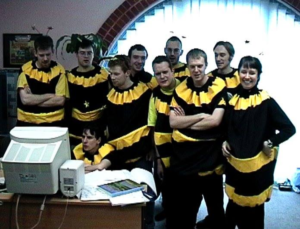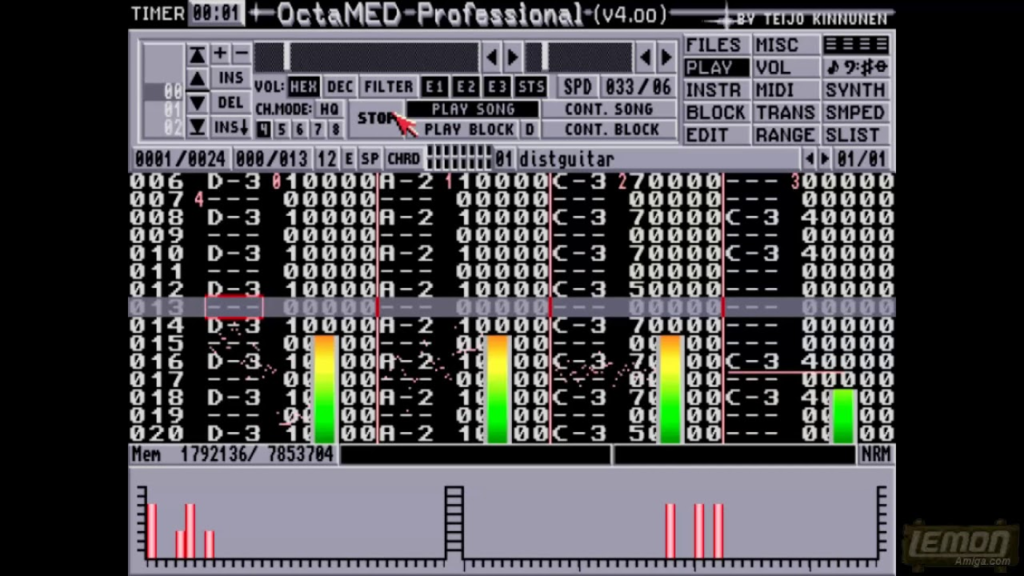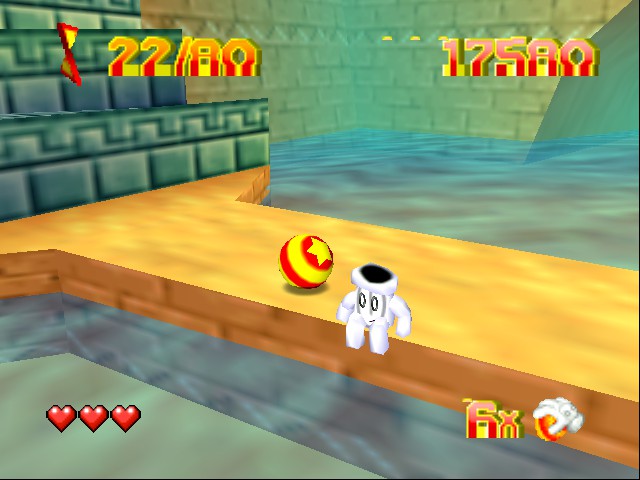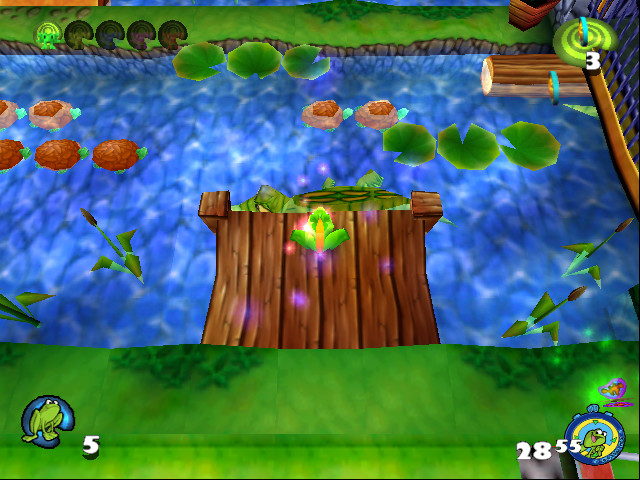The Beginnings in the Industry

I’ve been a game developer professionally since the 90s. Working for smaller studios developing console games initially, the fascination for the industry culminated in a job at PlayStation R&D focussing on UI/UX API systems. After that I moved onto more ‘serious business stuff’ – learning web, backend and databases. I was able to observe the games industry grow and change from the inside since the original PS1. A number of learnings can be directly applied to software development tools today – particularly nocode. This article outlines some of the history I’ve lived, and how I think it relates to modern startups. Disclaimer: I’m the CTO of HarmonyCB, a UI builder so I’m nocode biased to a certain level 🙂
A Very Short Intro to the History of Coding
To begin with the ever present worry of teaching grandma to suck eggs: software development and programming languages are just increasing levels of abstraction. Starting with binary at first people invented Assembly Language because binary was hard. C++ was introduced for similar reasons, later Javascript/HTML for the web. After that game development tools like LUA, then Unity and Unreal Engine entered the market, all of which brought the creation of creative projects stepwise closer to the masses. How did this come about and what effects did it have?
Bringing Game Development to the Masses
Back in the 8bit days, working in game development, we used to enter music into code as SOUND commands with frequencies in HZ, so we invented music trackers to help us with this. We also had to enter graphics and sprites (initially drawn on graph paper) in DATA statements, literally pixel by pixel translated into numbers. All this was done by programmers. As the industry expanded people with all sorts of skill sets were needed, artists, musicians, game designers and many more.



Tools that Made Designers & Artists Lifes Easier

All these editors were designed to make creative folks’ lives easier and prevent developers from doing repetitive work. The number of creatives involved in game dev. has become many: texture artists, level builders, game designers, sound designers, animators, script and story writers. Without these tools it would still all come down to a programmer typing in numbers and we would never see the likes of the top quality games we are used to now, let alone the amazing indie games written in Unity.
Benefits of Nocode Tools in Game Development
In addition, the tools and builders brought more benefits that weren’t really foreseen:
- Iteration speed. When creatives no longer had to wait for a developer to ‘type in the numbers’ it resulted in an exponential growth in the quality of game graphics, as well as a much more in-depth game experience than before. As we know in the startup world, failing and iterating is the main way to reach product-market fit fast.
- Fun! Using these tools is a pleasurable experience for people, although users of my first editor might disagree. I think everyone in the game scene spent hours trying to make pixel art for projects. Many programmers are also musicians and it was just one of the nice aspects of building games. When a job is fun people make more of a creative effort doing it.
- Collaboration. Once there wasn’t just a set of text files to work with, it became possible for multiple people to work at once. Different disciplines could all work on different aspects of the game simultaneously. This didn’t just increase velocity, but increased flow-state amongst multiple people. Often one would see multiple disciplines working together as programmers currently do in pair programming.
- Accessibility. Kids could start getting into these tools. I remember, as a child I was using the Autodesk Animator for hours to make things, or the 3d Construction Kit to build entire 3d environments with logic, doors that opened with keys, pickups and power-ups. All without any programming required (at least in the traditional sense). This is how I learnt my craft, and eventually landed a job as a game developer.
Comparing the Startup and Gaming Lingo
We also had our equivalent of VCs – most games companies were independent but the projects were funded by large game publishing companies like Hasbro, EA, et al. Back in those days budgets were around the 2 million mark for a PS1/N64 game. The project was split into milestones where we initially produced a pitch. Once greenlit we made a vertical slice (MVP), iterated on the product with playtesting, and finally started releasing things in the form of demos and early access. There’s more equivalencies here than I can count to the startup scene.
iterations => playtesting
MVP => vertical slice
VCs => game publishers
nocode => Unity
sprints => milestones
finding PM fit => early access/demos
Swampy's Revenge

All the above in very young teams supported by industry vets, I was 21 and the technical manager on a team of 10 and a budget of 2 million, with the goal to publish our first game Frogger2 “Swampys Revenge”. The game landed in the book “The Games that Weren’t” recently, included as one of the platforms that was shelved after a year of work, but that’s a different story.
Final Learnings from the History of Game Development
The biggest thing that transformed our industry was the invention of the tools that allowed multiple diverse disciplines to work together rather than having the developer type in the numbers to make things happen – it’s what now allows teams of 100s to work together on massive AAA games today and I’m proud to have been a part of that.
The million dollar question is, although that works well for games, what can we learn in web dev / startups? I think the current crop of nocode tools like Bubble, Adalo, Integromat are only touching the tip of the iceberg in terms of the change we can see. If we can achieve what Unity did for games but on the web, there will be a fundamental shift from designers producing wireframes before frontend developers have to implement them, to a much more collaborative system. The benefits of that will be incalculable.
Finally, learning from writing game editors: Modifying things in a live environment where changes affect the actual “play” of a product directly and instantly is awesome. This is much more powerful than a linear, pipelined process – borne out by our focus in startups on iteration and trying things quickly.
Nocode tools are older than you might think. We can learn a thing or two from game development in the late 90s.



